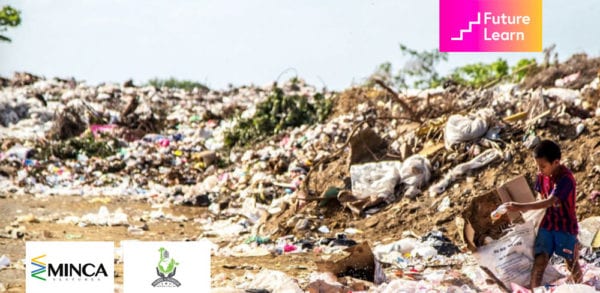Sharing ideas on alternative enterprises: the global reach of a social enterprise free online course
As people around the world look for alternative enterprise ideas, a new journal paper shows how a Massive Open Online Course (MOOC) has been reaching over 180 countries with participants sharing the ideas further into their own networks.

The social and environmental challenges facing the world require sharing of ideas on alternative visions on a massive scale. Online courses are one way of sharing research, and CUSP researchers have been involved in developing Massive Open Online Courses (MOOCs) related to social enterprise. We never quite know who is using these courses and what the impact might be. A recent journal paper has been exploring this and examining how far ideas in the course may have spread. Just as social enterprises aim to scale up and spread social innovation, as researchers we try to improve the ways our research can have an impact.
Social enterprises are alternative enterprise forms that put wellbeing, environment and democratic governance as a primary aim. Research on social enterprise was used to develop a series of three Massive Open Online Courses in a partnership between Middlesex University, the Jindal Centre for Social Innovation + Entrepreneurship and the social enterprise Living in Minca, with funding by the British Council. To date, there have been 50,000 registrations for the courses in 180 countries. The first course, with 16,000 registrations, introduces the ideas, the second course, with 15,000 registrations, is helping people turn ideas into action and the third course, with 19,000 registrations, is about growing a social enterprise. The courses have developed innovative ways for learners to share ideas and build relationships with others. All online courses face the challenge of creating active learners, and we found that 15% of those registering were becoming more actively involved. However, this does not tell us about the impact.
The recently published journal paper examines the impact of this MOOC, following a survey of active users, several years after they completed the course. This paper shows that 26% of the respondents to the survey of active learners could attribute their ability to start up new enterprises to the MOOC. While not all these will survive, this equates to thousands of new social enterprises. We also found 43% of the survey said the course helped them grow the social enterprise they work in, and many learners were using the course to bring in social enterprise concepts into conventional businesses.
However, it is the generosity of the learners that may have the biggest impact in the future. The survey found four in five of the respondents were sharing ideas, becoming mentors and encouraging others. The scale of impact depends on cascading of ideas from academic research to course development to learners and finally to the learners’ own networks. The collaborative nature of social enterprise was being reflected in how people are willing to give generously of their time and knowledge in ways that can scale up their social impact.
Social enterprises have a different concept of growth to conventional business as success is judged on social impact not financial returns. The sharing of knowledge derived from the MOOC and mentoring of others shows how those involved in this sector are follow a different culture than a competitive business sector. It also shows that online courses can be having an impact at a global scale.
The set of three courses have been relaunched this week on Futurelearn and welcoming people to join the 2020 community of active learners.
The paper on the impact of the Massive Open Online Course—written by Sara Calvo, Fergus Lyon, Andres Morales and Jeremy Wade—is published in the journal Sustainability (open access).



